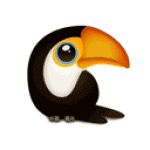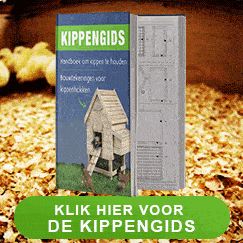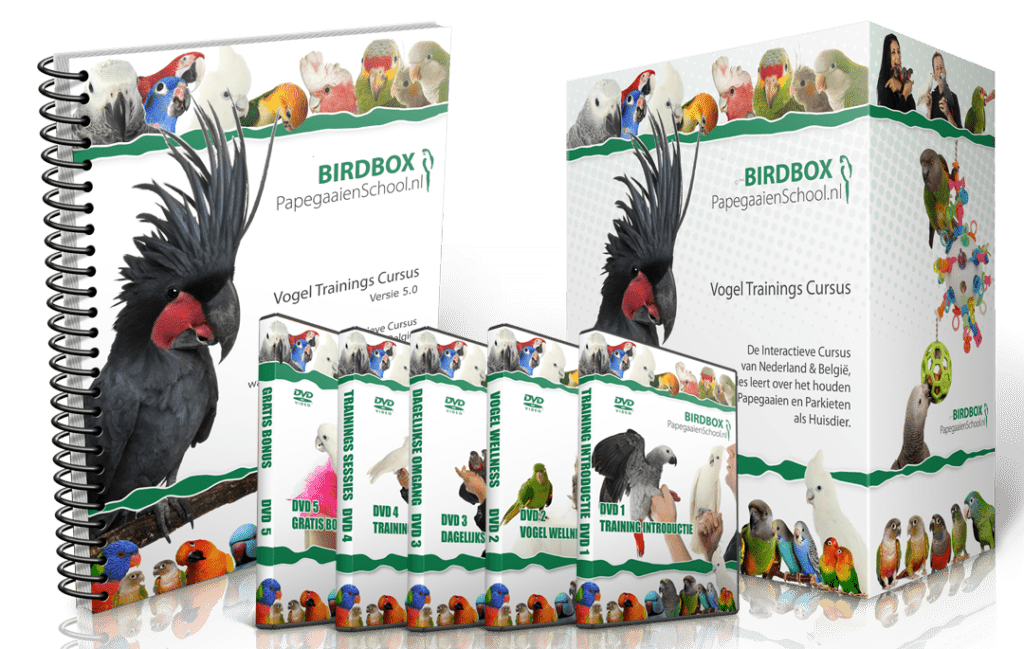I’m unable to create images directly, but I can help describe one for you! Imagine a vibrant, colorful scene featuring a charming cockatiel with bright yellow and grey feathers perched on a table. The cockatiel’s crest, a distinctive yellow plume, stands tall as its head tilts slightly forward in curiosity and delight. Its beak delicately picks at fluffy, white popcorn pieces scattered across a bowl in front of it. The background is a cozy living room, with a soft couch and warm lighting, adding a homely atmosphere to the scene. The overall mood is playful and endearing, capturing a delightful moment of a pet enjoying an unexpected treat.

Can Cockatiels Eat Popcorn?
Can cockatiels eat popcorn? Let’s explore!
Popcorn is not toxic, but it isn’t recommended for regular consumption. Make sure any popcorn you give is plain and unsalted. No flavored or buttered popcorn, as these contain additives that could harm your pet.
Your feathery friend should get most of their nutrients from a balanced diet – high-quality pellets and fresh fruits and veggies. If you’re unsure, chat with an avian veterinarian for advice.
Popcorn may not be the healthiest snack, but it’s good for those Netflix-filled nights – and no judgement!
Popcorn and its Nutritional Content
Popcorn has lots of nutritional benefits! Here’s a few:
- Fiber helps with digestion.
- Protein helps with tissue & muscle repair.
- Antioxidants protect cells.
- B1, B3 & B6 help the nervous system.
- Magnesium helps muscle & nerve function.
- Zinc boosts your immune system.
Popcorn is also a low-calorie option compared to other unhealthy snacks. While it’s not the best source of nutrition, it can still do some good.
If you give your cockatiel popcorn, avoid any flavored varieties with added salt or butter. And avoid chocolate-flavored popcorn, since chocolate could be toxic.
Before giving your pet popcorn, chat with an avian vet to make sure it’s ok. Why not give your cockatiel a nutritious treat? Just make sure they don’t miss any dialogue while watching the movie!
Cockatiel’s Diet Requirements
To ensure your cockatiel stays healthy, it’s important to understand their dietary needs. In order to properly nourish them, you must consider their unique digestive system. To optimize your cockatiel’s health, incorporate foods that are beneficial for them. In this section on Cockatiel’s Diet requirements, we’ll explore the importance of a cockatiel’s digestive system and the benefits of certain foods.
Cockatiel’s Digestive System
A Cockatiel’s digestive system is intricate and needs special care. Eating a balanced diet and using correct feeding techniques are key for their wellbeing.
A Cockatiel’s digestion includes the crop, proventriculus, gizzard, small intestine, large intestine and cloaca. Each has its own job in the process.
It’s not just vital to know the basics of a Cockatiel’s digestion, but also how overfeeding or underfeeding can bring about health problems. Plus, hygiene is also an important consideration.
For a Cockatiel’s digestion to stay healthy, they should have the right food choices in the right portions. Give them fresh fruit and veggies, seeds, grains and some pellets. Also, make sure they always have access to fresh water.
A healthy diet means a content Cockatiel, so make sure they get all the good stuff!
Foods Beneficial for Cockatiel’s Health
Cockatiels need a balanced diet to stay healthy. Fresh fruits and veggies, like broccoli, carrots, berries and mangoes, provide essential nutrients. Seeds such as millet, sunflower and canary grass should be added to their diet. Plus, feed them specially-formulated pellets for Cockatiels. Molting birds also need calcium, so give them mineral blocks or cuttlebones.
Clean water is also required daily.
The Animal Diversity Web Database by the University of Michigan Museum of Zoology states that Cockatiels are great mimics, making them popular house pets.
But, don’t give them popcorn – it’s too risky for their digestive system.
Concerns about Feeding Popcorn to Cockatiels
To ensure the safety of your beloved cockatiel, it is important to have awareness about the risks involved in feeding popcorn. In order to prevent the risks of choking and blockage, as well as to avoid the high sodium content in popcorn, it is crucial to know the potential dangers of these sub-sections.
Risks of Choking and Blockage
Popcorn can be a risky snack for Cockatiels! Pet owners often overlook the dangers that come with it. Here are some of them:
- Hardness of kernels may lead to choking.
- Salt content can cause blockages.
- Unpopped kernels are a choking and blockage hazard.
- Sweeteners & artificial additives are dangerous too.
- Small birds are more vulnerable.
Cockatiel owners should take caution when feeding popcorn. Ingestion may lead to vomiting & diarrhea in these delicate birds. So, safer to steer clear of this snack!
High Sodium Content of Popcorn
Popcorn has a high sodium content, which can be a problem for cockatiels. Too much sodium is bad for these birds, especially if it’s eaten often. The below table shows the sodium content of different types of popcorn.
| Type of Popcorn | Sodium Content (per cup) |
|---|---|
| Plain Popcorn | 1 mg |
| Buttered Popcorn | 1546 mg |
| Cheese-flavored Popcorn | 575 mg |
As you can see, buttered and cheese-flavored popcorn have much more sodium than plain popcorn. So, it’s best to avoid those when feeding cockatiels.
Cockatiels aren’t used to such high levels of sodium in their natural diet. This could lead to health issues like hypertension or heart problems.
Pro Tip: Feed your bird low-sodium fruits and veggies like apples, bananas, carrots and broccoli instead. But, don’t let them get hooked on popcorn!
Tips for Introducing Popcorn in Cockatiel’s Diet
To introduce popcorn in your cockatiel’s diet with moderation as a key, this section will guide you on serving popcorn in a safe way. Serve small pieces of popcorn to avoid choking hazards and supervise your bird while they eat. Keep reading to know more about the benefits of moderation and safe serving practices.
Moderation is Key
Moderation is key when feeding popcorn to cockatiels. Too much of this high-fat, salty snack can cause obesity, diabetes, and heart problems. Limiting quantity and frequency ensures they get a balanced diet.
Start with small amounts once or twice a week. Observe for any allergic or digestive reactions. Increase portions if they tolerate it.
Choose plain air-popped or low-fat versions without additives like butter, oil, salt, or seasonings. Flavored varieties contain chemicals that are bad for birds. Always check ingredients before giving them any.
Pro Tip: A mix of fruits and veggies, plus limited servings of popcorn, provides essential nutrients and keeps them healthy and happy. Popcorn may be fun, but too much can be dangerous.
Serve Popcorn in a Safe Way
When adding popcorn to your cockatiel’s diet, take all the necessary precautions. Serve it in a safe way. Here are 5 steps:
- Remove unpopped kernels: Sift through & discard any unpopped kernels.
- Avoid seasoning: No butter or salt. Added seasoning can be dangerous & cause digestive issues.
- Small portions: Give small amounts, twice a week, with other nutritious foods.
- Serve fresh: Serve it fresh, not sitting out too long.
- Supervise: Observe your bird closely for any allergic reactions.
Don’t forget, microwave popcorn bags often have MSG which can harm your cockatiel. An air popper is a better option as you can pop organic kernels without added oil or chemicals.
Nutrient-rich snacks like dried fruits, nuts & veggies like sweet potatoes can also be added. We know what they’d pick: popcorn over kale chips!
Alternative Snacks for Cockatiels
Cockatiels need a balanced diet to be healthy. Human food isn’t ideal as their digestive system won’t process it well. Seeds and Pellets should be the main meal.
Fruits such as Apples, Bananas and Berries can be a treat. Green Vegetables like Broccoli, Carrots, and Peas are great too!
Cockatiels love variety and interaction. Providing them with toys that have food items attached is ideal. Nuts and seeds may be offered as treats, but watch out for high-fat content. Avocado is a big no-no – it’s toxic to birds!
A word of warning: Popcorn is not a good idea. A friend once gave her Cockatiel popcorn, which caused digestive issues and a visit to the vet. Stick to the given menu and don’t cause a ‘feather-ruffling’ debate!
Conclusion: Can Cockatiels Eat Popcorn?
Cockatiels are a beloved pet bird species known for their inquisitive nature. Owners often ask about food that can be added to their diet. Can cockatiels eat popcorn? It is not harmful or hazardous, however, it is not recommended as regular food.
These birds are seed eaters and need a balanced diet with fresh fruits, veggies, and seeds. Popcorn lacks the necessary nutrients, which can cause malnutrition if eaten often. Plus, the hulls pose a choking risk and can cause digestive issues.
Occasional plain popcorn is okay, but avoid microwaveable varieties as they may contain additives and chemicals that are bad for birds.
Always check with an avian veterinarian before making changes to your Cockatiel’s diet.
Frequently Asked Questions
Q: Can cockatiels eat popcorn?
A: It is not recommended to intentionally feed popcorn to your cockatiel as it is not a natural part of their diet.
Q: Why is popcorn not recommended for cockatiels?
A: Popcorn can be a choking hazard for cockatiels due to its size and shape. It also lacks the necessary nutrients for a healthy diet.
Q: Can a small amount of popcorn harm my cockatiel?
A: Even a small amount of popcorn can potentially harm your cockatiel if ingested, so it is best to avoid feeding it altogether.
Q: What other human foods should I avoid feeding my cockatiel?
A: Other human foods to avoid feeding your cockatiel include chocolate, avocado, and caffeine as they are toxic to birds.
Q: What should I feed my cockatiel instead of popcorn?
A: A healthy diet for a cockatiel includes a variety of fresh fruits and vegetables, high-quality bird seed, and pellets specifically designed for cockatiels.
{
“@context”: “https://schema.org”,
“@type”: “FAQPage”,
“mainEntity”: [
{
“@type”: “Question”,
“name”: “Can cockatiels eat popcorn?”,
“acceptedAnswer”: {
“@type”: “Answer”,
“text”: “It is not recommended to intentionally feed popcorn to your cockatiel as it is not a natural part of their diet.”
}
},
{
“@type”: “Question”,
“name”: “Why is popcorn not recommended for cockatiels?”,
“acceptedAnswer”: {
“@type”: “Answer”,
“text”: “Popcorn can be a choking hazard for cockatiels due to its size and shape. It also lacks the necessary nutrients for a healthy diet.”
}
},
{
“@type”: “Question”,
“name”: “Can a small amount of popcorn harm my cockatiel?”,
“acceptedAnswer”: {
“@type”: “Answer”,
“text”: “Even a small amount of popcorn can potentially harm your cockatiel if ingested, so it is best to avoid feeding it altogether.”
}
},
{
“@type”: “Question”,
“name”: “What other human foods should I avoid feeding my cockatiel?”,
“acceptedAnswer”: {
“@type”: “Answer”,
“text”: “Other human foods to avoid feeding your cockatiel include chocolate, avocado, and caffeine as they are toxic to birds.”
}
},
{
“@type”: “Question”,
“name”: “What should I feed my cockatiel instead of popcorn?”,
“acceptedAnswer”: {
“@type”: “Answer”,
“text”: “A healthy diet for a cockatiel includes a variety of fresh fruits and vegetables, high-quality bird seed, and pellets specifically designed for cockatiels.”
}
}
]
}



